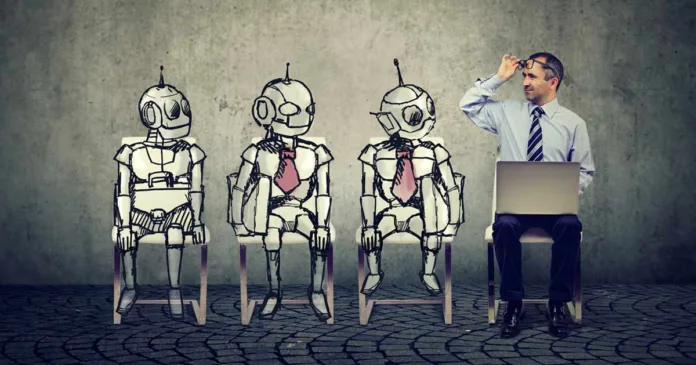
The future of work is undergoing a massive transformation, primarily driven by job automation, artificial intelligence (AI), and advanced robotics. As we move deeper into the digital age, these technologies are not just altering the way businesses operate—they’re reshaping the job market, the nature of employment, and the skills workers need to thrive. In this article, we’ll explore how automation is influencing work today and what we can expect in the near future.
The Rise of Job Automation
Job automation refers to the use of technology to perform tasks that were once done by humans. From manufacturing to customer service, automation is making operations more efficient while reducing labor costs. According to recent studies, nearly 47% of current job roles could be automated using existing technologies.
Robotics and AI are at the core of this change. In factories, robots handle repetitive and dangerous tasks with precision. In offices, AI-driven chatbots handle customer queries, and machine learning algorithms help in decision-making. These innovations, while increasing productivity, also pose challenges for the human workforce.
Impact on Employment
As automation advances, many traditional roles are disappearing or evolving. For example, roles in data entry, telemarketing, and routine assembly line work are among the most vulnerable. However, it’s important to note that while automation may displace certain jobs, it also creates new roles.
Workforce transformation is not about eliminating jobs entirely but about changing their nature. Jobs that require creativity, emotional intelligence, and complex problem-solving are less likely to be automated. This shift calls for employees to reskill and adapt to the changing landscape.
The Need for Reskilling and Upskilling
To stay relevant in the future of work, continuous learning is essential. As AI in the workplace becomes more common, workers must develop new competencies. Skills in digital literacy, data analysis, and cloud computing are increasingly in demand.
Companies are now investing in employee training programs focused on automation technology and digital tools. Government initiatives around the world are also encouraging skill development to prepare for the automation era.
The Role of Artificial Intelligence and Machine Learning
Artificial intelligence is revolutionizing sectors far beyond manufacturing. In healthcare, AI assists in diagnosis; in finance, it improves fraud detection; and in logistics, it enhances supply chain efficiency. These advancements mean that AI-powered jobs are not only on the rise but becoming central to business strategy.
Machine learning algorithms can analyze massive datasets to generate insights that humans might miss. Professionals who can interpret and leverage this data will have a competitive edge in the job market.
Remote Work and Automation
The COVID-19 pandemic accelerated the shift to remote work, and automation played a significant role in making it sustainable. Cloud-based collaboration tools, automated workflows, and virtual assistants are now standard in many industries. As remote work becomes more prevalent, digital transformation in the workplace continues to be a driving force behind organizational success.
Challenges and Ethical Considerations
Despite its benefits, automation brings challenges such as job displacement, privacy concerns, and the need for regulatory oversight. There’s also a growing debate around ethical AI—ensuring algorithms do not promote bias or inequality.
Companies must balance efficiency with responsibility, ensuring that technological advances benefit all stakeholders, including employees, consumers, and society at large.
Preparing for the Future
To thrive in this evolving job market, individuals must adopt a proactive mindset. Lifelong learning, adaptability, and a willingness to embrace technology will be key to staying ahead. For businesses, fostering a culture of innovation and continuous development is essential.
Governments, too, have a critical role to play by creating policies that support both technological advancement and social stability. From funding education programs to offering incentives for tech-based entrepreneurship, a collaborative effort is needed to shape a future of work that is inclusive and sustainable.